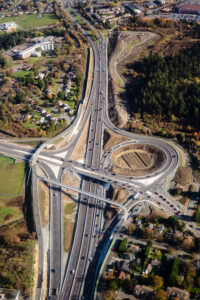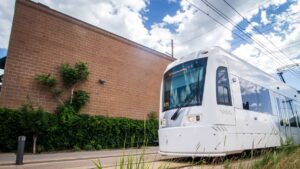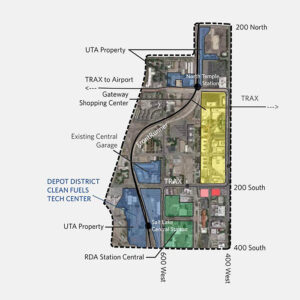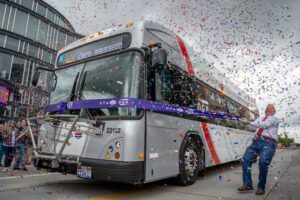Electrified Short-Range Drayage Routes
¼ Mile (Drayage) Electrified Roadway: To improve the efficiency and performance of short-distance drayage routes, ASPIRE will install a dynamic charging system at the Utah
¼ Mile (Drayage) Electrified Roadway: To improve the efficiency and performance of short-distance drayage routes, ASPIRE will install a dynamic charging system at the Utah

The Utah Intelligent Electrified Transportation Action Plan, established in 2023 by SB125, is a living document and planning process. It is and will continue to

Building on Utah’s legacy of working together, this planning effort recognizes the following areas where gaps may exist that are in the process of being

Key Observations Steady use of the electrical grid throughout each day helps the grid deliver more power for consumption, driving down electricity prices. Additional power generation

ASPIRE received a grant from the Department of Energy to develop a plan for multi-modal electrification along the Wasatch Front. The project will deliver a 20-year medium- and heavy-duty zero-emission vehicle (MHD ZEV) infrastructure deployment plan — benefitting the communities that experience the most impacts from freight emissions.

UTA announced the expansion of the S-Li ne service in Sugar House. The project extends the line to Highland Drive to support economic development and serve the growing population.

UTA’s Central Depot District Garage, or Depot District, was opened in May 2023. It was uniquely designed as a one-stop shop to accommodate alternative fuel and clean-air transit vehicles. Depot District also houses a fleet of 47 compressed natural gas (CNG) buses. In addition to administrative offices and UTA tech center, the depot features charging stations for 24 of its e-buses, diesel refueling, outdoor bus parking under modern canopies, and a bus wash.

After two decades of planning, UTA successfully launched its second rapid transit system — the Ogden Express (OGX) — in August 2023. This innovative system features 11 electric buses that connect the Ogden FrontRunner station with Weber State University. Thanks to a federal grant, OGX is fare free for the first three years.

Managed by OED, REVI is a $3 million matching grant program designed to provide funds to rural electric cooperatives for upgrading and installing new charging infrastructure. OED is preparing to announce grant recipients in August 2024.
Economic Growth: Electric vehicles have the ability to increase the disposable income of drivers through the savings realized to power the vehicle as compared to